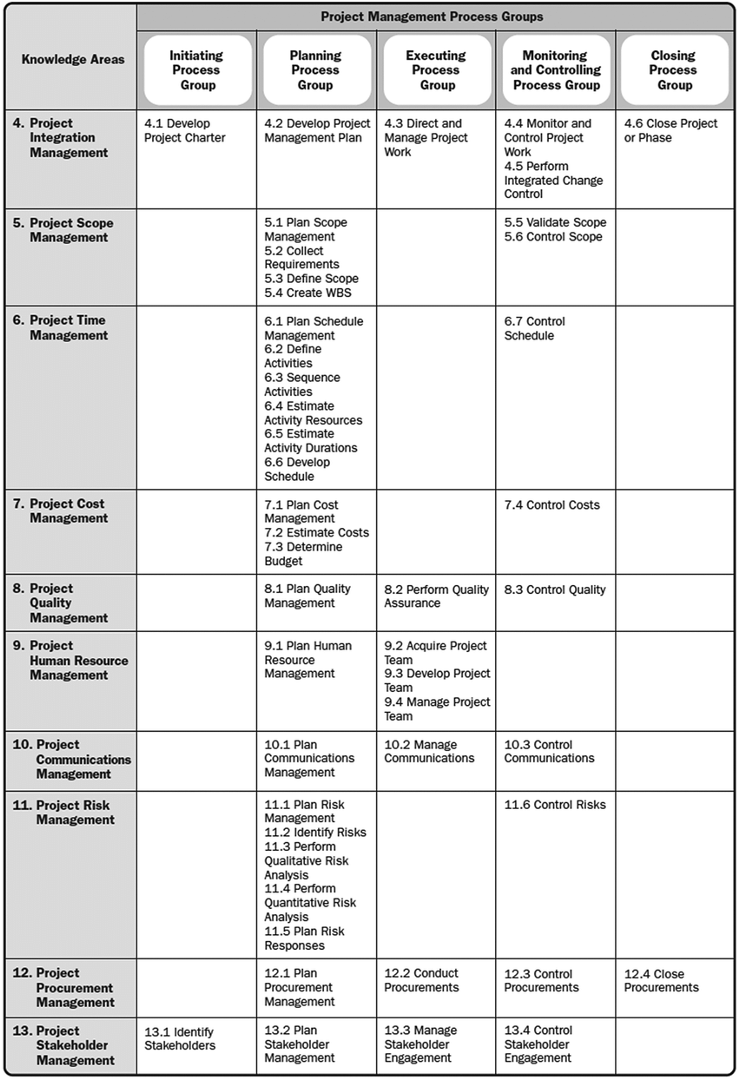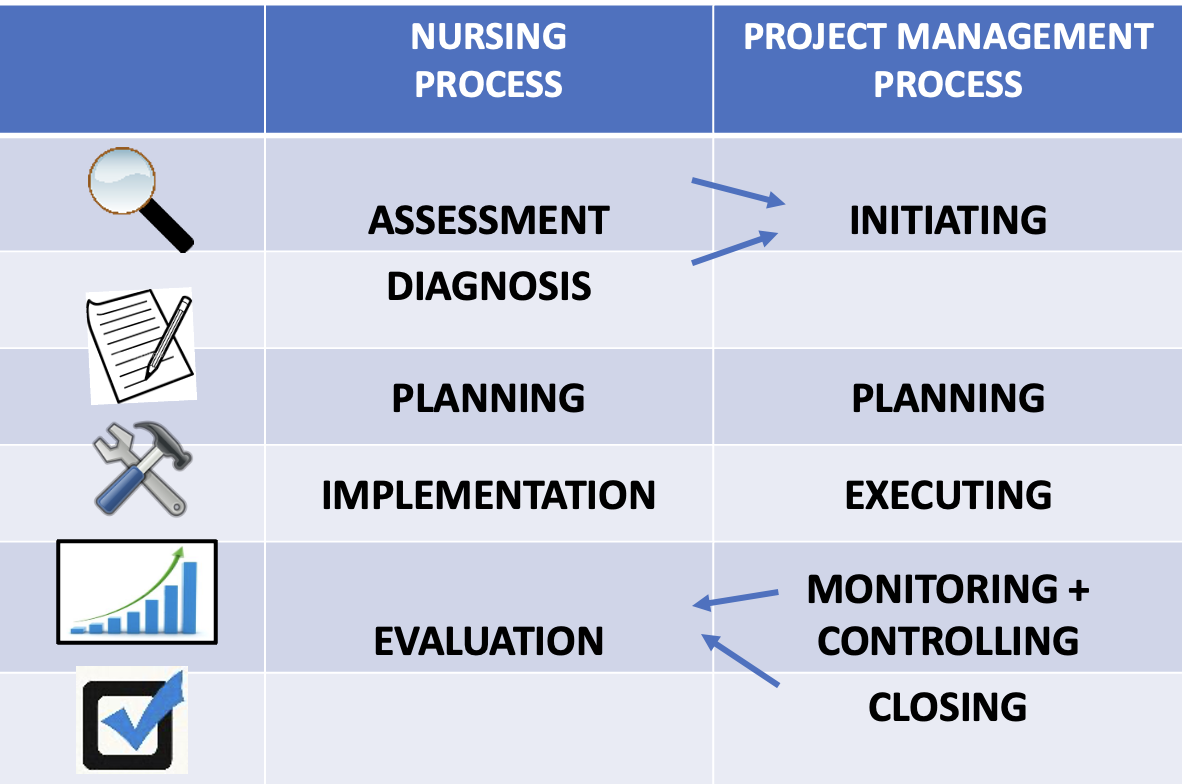Blog Contribution by Kristina Krail, RN, MPH, FACHE, PMP, EDAC, NIHD Board Secretary.
One of the first things I remember learning in my baccalaureate nursing program was about the NURSING PROCESS. For those of you who are not nurses, it’s a goal-oriented method that guides our practice and provides a framework for the care we provide. It has been a part of the American Nurses Association professional standards for over 50 years and is second nature to all nurses. Steps in the process include Assessment / Diagnosis / Planning / Implementation / Evaluation. I’ve embraced that framework throughout my career; first as a bedside nurse, then as a nursing and hospital administrator, and now as a healthcare consultant and transition advisor.
My early administrative career included “special project” responsibilities. I reported to the VP for Patient Care at a large academic medical center and when a significant building project commenced, I was the nursing department representative on the project, assigned to represent our interests and coordinate the demands of that initiative along with everything else going on in our department. I quickly came to understand the relationship between time or schedule, cost or resources, and scope or work to be accomplished.
That knowledge and experience helped develop a unique capability desired by my next employer who was also embarking on a significant building project. I continued to hone those skills with the help of continuing education before project management was even a certification program or college major. Furthermore, the body of knowledge associated with project management wasn’t just applicable to building projects; it added to my capabilities as a line administrator and really allowed me to demonstrate my ability to get the job done – on-time and on-budget, serving me and the organizations I served as a hospital Chief Nursing Officer and hospital association Chief Operating Officer.
Once I segued to consulting, I wanted to affirm my project management skills through a formal credentialing process. The Project Management Institute (PMI) is the leading professional association for project management and the global authority for all who use project management skills. Their comprehensive certification program offering the Project Management Professional (PMP) credential is the world’s leading certification for the specialty. The year I was credentialed, there was less than 800K PMPs worldwide. As part of the process, I learned about the foundational basis, source of knowledge, and proven practices, principles and procedures associated with the specialty.
A Guide to The Project Management Body of Knowledge (PMBOK® Guide) is the globally recognized standard for the project management profession. It provides an extraordinary amount of information and guidance to the project management field. Its content is organized around the concept of “knowledge areas” and “process groups” and how those concepts intersect and relate to achieve project objectives.
There are important differences between the practice of nursing and the practice of project management to be sure. Most notable, the nursing process is a critical thinking construct while managing a project is a time-limited endeavor to create a unique product, service or result. Even so, the project management process groups align almost perfectly with the nursing process. There are many similarities between the two that a clinician who is new to project management can draw on. Additionally, the project management knowledge areas; particularly time, cost, quality, human resources, and communications, are also familiar topics to most nurse professionals, especially those in leadership roles.
I submit that every nurse has had project management responsibilities within their role although it may not have been thought of as such. Think about the continuing education offering you designed, the new huddle process you implemented, or the policy you helped create. Whether you are currently working within the design industry or giving it consideration, you already have a certain amount of project management experience. Next steps are to learn from PM experts /mentors and self-directed knowledge acquisition. If you are serious about becoming a clinical design project manager, give consideration to a formal certification or academic program. The credential will prove invaluable.
Blog Contribution by Kristina Krail, RN, MPH, FACHE, PMP, EDAC, who is currently serving NIHD as the Board Secretary. She is an independent Healthcare Consultant and Transition Advisor certified as a WBE in NYS.
Contact Kris at KristinaKrail1@gmail.com or www.KrailAdvisory.com.




